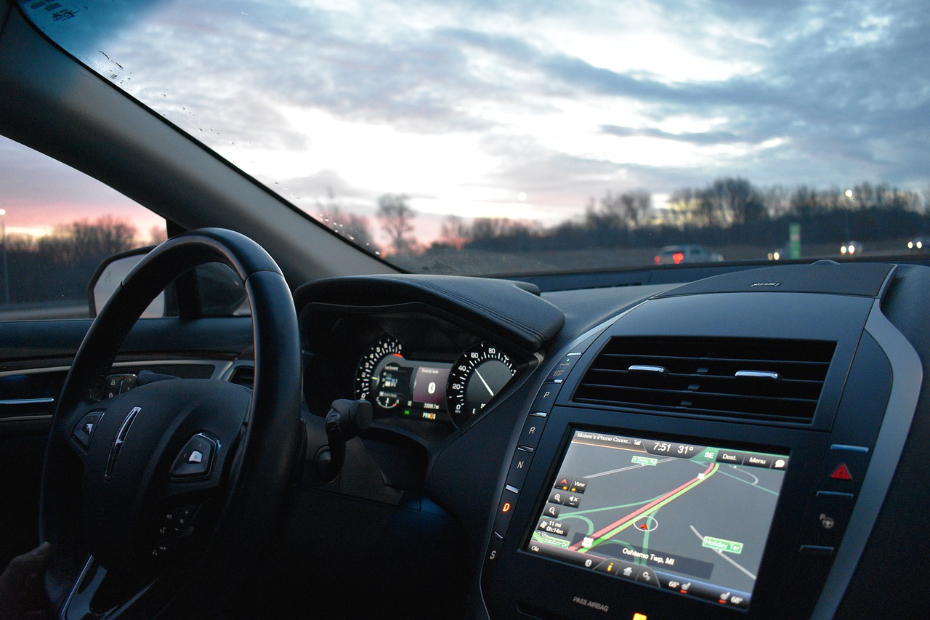An electronic vehicle logbook is a cheap 'insurance' against various tax penalties. The tax authorities will accept an electronic logbook as long as it meets the required information and is reliable. The information stored in electronic form must be easily accessible and printable if necessary. This article describes some important advantages of using an electronic logbook from a tax perspective.
Taxation and reporting: The driving logbook should be an accurate and reliable document. An electronic driving logbook provides an accurate and reliable way to document driving distances. Business and private trips should be separated if the vehicle is used for both. This helps to facilitate tax-related reporting, such as calculating the operating benefit and proving the right to VAT deduction. A regularly and accurately kept driving logbook usually helps to avoid tax penalties.
If vehicle journey data is recorded manually, the information should be entered as accurately as possible. It is very important to ensure that the information recorded in the driving logbook corresponds to the actual events. Incorrect or inaccurate information can cause problems with taxation and, in the worst case, lead to unpleasant tax consequences.
Private rides: It is important to be aware that even a small amount of private driving in a company-owned vehicle will eliminate the vehicle's VAT deduction right in its entirety. In this case, VAT deductions for work trips must also be returned to the tax authorities for all expenses, which are usually the purchase cost, fuel and maintenance. In the case of vans, VAT deductions can only be made for working hours.
Car advantage: “If an employee or his/her family uses the employer’s passenger car or van for private travel, the benefit received by the taxpayer is considered a car benefit.” (Tax.fi / Car benefit Section 17). A vehicle use benefit is a benefit that an employee or entrepreneur receives when he or she is allowed to use a vehicle owned by the employer or company, including during private driving. The amount of the taxable use benefit may vary depending on how much the vehicle is used for private driving. The more the vehicle is used for private driving, the greater the value of the use benefit and the greater the tax consequences.
The company has the obligation to provide proof: The burden of proof regarding the trips and their purposes lies with the company. Without reliable driving log data, the tax authorities will assess the number of private trips made with the vehicles on a case-by-case basis. In this case, retroactive tax penalties may be imposed for the last three years, for example, and the amounts may be very large.
4 most important questions from a tax perspective

1. What if a company vehicle is used for private purposes without permission?
Vehicle VAT will be charged: If the company uses a passenger car for which VAT has been deducted, private driving is completely prohibited. Even a small amount of private driving will eliminate the right to deduct VAT, putting the company at risk of tax penalties.
Natural advantage: A car provided by an employer is usually considered a fringe benefit, which gives the employee a taxable benefit. If an employee uses the employer's car without permission, they may have to pay taxes on this fringe benefit. This means that they may have to pay taxes on a benefit they did not actually receive.
Tax avoidance: If an employee drives the employer's car without permission, this may be interpreted as tax evasion or tax avoidance. Tax evasion is illegal and can lead to criminal penalties.
Breach of employment contract: By driving the employer's car without permission, an employee may be violating the employment contract and the employer's rules. This may lead to termination of the employment contract or other employment-related consequences, such as a warning or dismissal.
2. How long should driving logs be kept for tax purposes?
Driving data retention period: According to the tax authorities, driving logs must be kept for six years from the end of the financial year. It is therefore important that driving logs are always completed on time and without gaps, thus ensuring proper documentation. Electronic driving log services that follow the tax authorities' instructions retain driving log data for at least the minimum period required by the tax authorities.
3. What is the most common reason for using an electronic driving logbook?
The most common reason to use an electronic driving logbook is to make deductions, vehicle tracking and documentation more efficient. The risk of tax penalties is eliminated when driving history information is filled out correctly and reliably.
A driving logbook is a prerequisite for the deduction. You can only get the deduction if you keep driving logbook.

4. Where can I find more information about keeping a driving log?
It is recommended to read the Tax Administration's instructions on the requirements for a driving logbook in more detail. The Tax Administration provides detailed information on tax-related rules and requirements for submitting driving logs. We especially recommend that you check with your local tax authority the tax regulations applicable to your company's industry and consult a tax advisor or expert on more specific vehicle taxation issues.
The tax authorities' travel information requirements vary by industry.
Want to hear more?
Read also:
Read more about keeping a driving diary on our blog. Benefits and concerns of an electronic driving logbook
Taxpayer: Vehicle purchase and operating costs: right to deduct VAT
